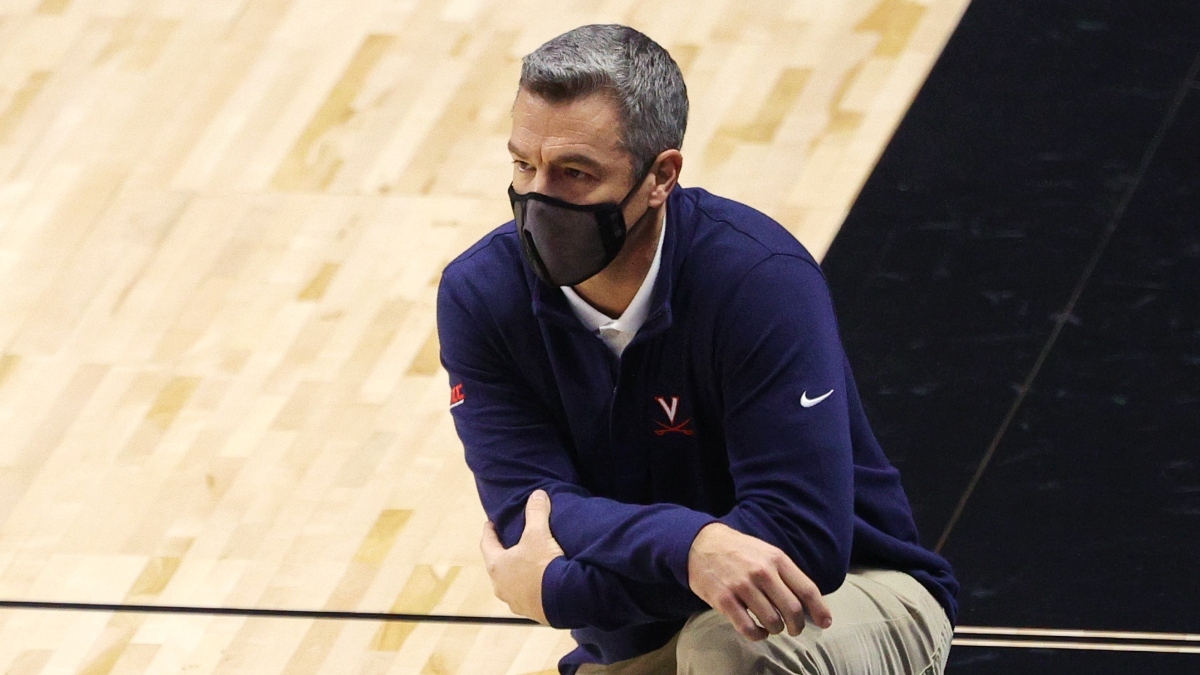
Maddie Meyer/Getty Images. Pictured: Head coach Tony Bennett of the Virginia Cavaliers.
The Virginia Cavaliers men’s basketball team was forced to withdraw from the ACC Tournament on the day of its semifinal game against Georgia Tech, but what does that mean for the NCAA Tournament?
It’s all confusing, and finding a straight answer is harder than it should be. That’s probably not an accident by the NCAA.
At first glance, Virginia’s tournament chances look dim based on the initial release by the NCAA. According to the NCAA, “any potential at-large team that is determined by the institution to be unable to meet the medical protocols and participate in its first game of the championship (March 18, 19 or 20) must notify the Division I Men’s Basketball Committee by 11 p.m. local time Saturday, March 13.”
That means Virginia has until this Saturday to determine if it can meet the requirements.
_BookPromo=722
What are those requirements, you ask? The NCAA communicates its Health and Safety Protocols as follows:
“All Tier 1 travel party participants will be required to undergo and document seven consecutive negative COVID-19 tests prior to arrival into Indianapolis. The NCAA will work with IU Health to provide health related support including the administration of daily PCR tests for Tier 1 individuals upon arrival and throughout the tournament. Tier 1 participants include student-athletes, coaches, athletic trainers, physical therapists, medical staff, equipment staff and officials.”
If testing started on Friday, seven days would mean March 18. If negative tests start on Saturday, March 19 is the target date for Virginia to meet the NCAA’s prescribed health and safety standards to participate in the tournament.
However, NCAA senior vice president of basketball Dan Gavitt pointed out a rule that may give Tony Bennett’s team a chance. According to Gavitt, a team can play if it has five available players who have passed the safety protocols.
Gavitt’s concession grants Virginia a path to participate, but it’s a fairly complicated one. First, the NCAA would have to offer the Cavaliers a bid to the tournament despite their positive test, which — on the surface — would be a challenge for its public relations to justify.
Next, Virginia would have to produce seven consecutive negative tests by March 17 or March 18, depending on how the NCAA is counting consecutive days. For UVA, that stipulation is straightforward enough. But for the NCAA Tournament organizers, it’s a calculated risk.
If Virginia is granted a NCAA Tournament bid, and then the program reports a positive COVID-19 test following the bracket reveal on Sunday, March 14, then the NCAA will replace Virginia with one of the first four teams left out of contention in the initial bracket release.
However, if the Cavaliers’ positive test occurs after Tuesday, March 16 at 6 p.m. ET, then it’s already too late. That date and time reflects the NCAA’s firm deadline for team replacements in this year’s tournament: Any team that withdraws from play after that deadline would not be replaced by another team waiting in the wings; instead, it would forfeit its opening game, and its opponent would automatically advance to the next round.
